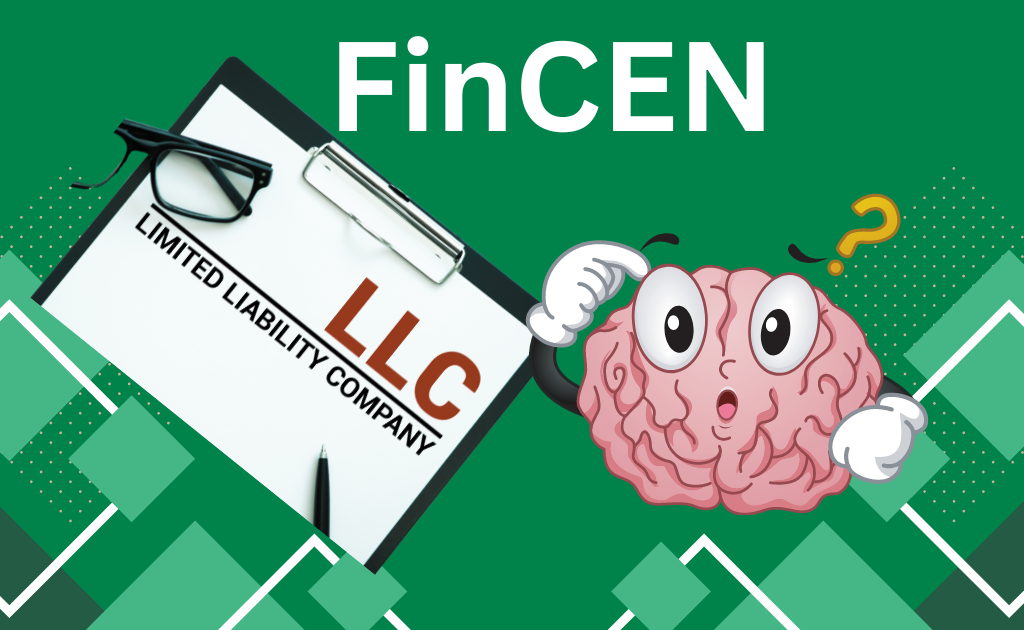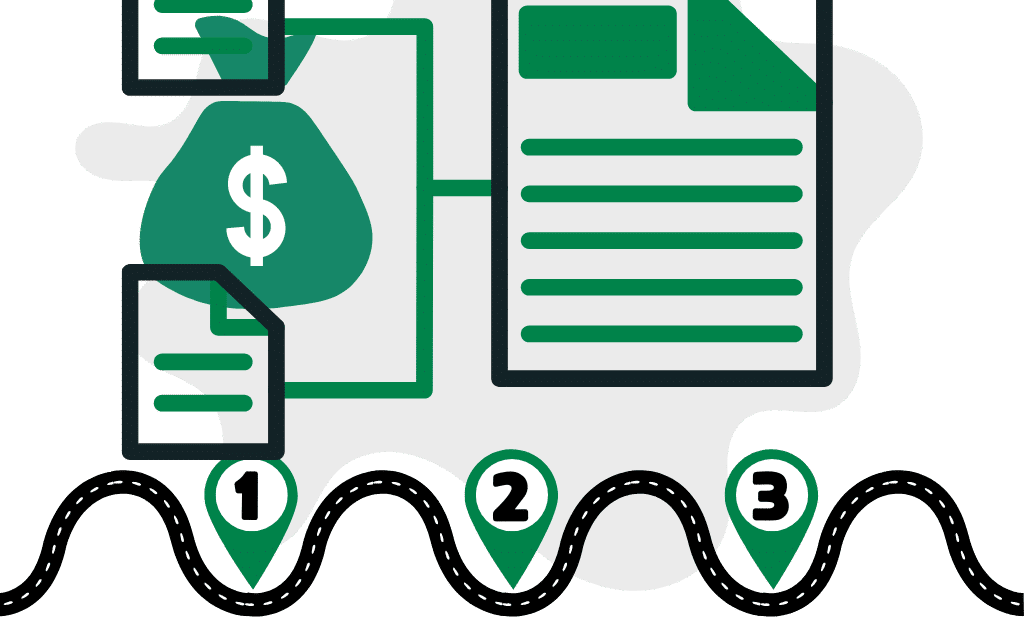A new twist has emerged for those who are equity owners of LLCs – the FinCEN Beneficial Ownership Reporting requirements brought you by the Corporate Transparency Act (CTA). This means additional filings that LLC owners need to manage and be aware of. Lack of compliance here can leave you a dent of up to $10,000 in your pockets for non-compliance.
In this article, we’re diving into a world where terms like FinCEN BOI compliance and the ownership rules as they apply to LLCs and how it can cost your LLC $10,000.
Understanding the FinCEN Beneficial Ownership Rule for LLCs
At its core, the FinCEN Beneficial Ownership Rule is a clarion call for transparency. The FinCEN Beneficial Ownership Rule is a regulation that requires many businesses, including Limited Liability Companies (LLCs), to report information about the individuals who ultimately own or control them. This rule stems from the Corporate Transparency Act (CTA), which aims to help the U.S. government identify money laundering, corruption, tax evasion, and other crimes.
Key Criteria for Compliance
Who exactly is a “Beneficial Owner”? to comply with the FinCEN Beneficial Ownership Rule, LLCs must report information about individuals who are considered “Beneficial Owners.” A Beneficial Owner is defined as someone who:
- Directly or indirectly owns 25% or more of the ownership interests of the company.
- Exercises substantial control over the company, such as having authority over decision-making
The following table shows the criteria for defining a “Beneficial Owner”:
|
Criteria |
Description |
|
Ownership Interest Threshold |
25% or more of the ownership interests of the company. |
| Substantial Control |
Authority over decision-making. |
Reporting Deadlines and Procedures
Timelines aren’t just dates on a calendar, they’re ticking time for the unprepared. For existing and new LLCs, these deadlines are milestones marking the journey toward compliance or the road to penalties. Deadlines for existing and new LLCs to file their initial reports are as follows:
- LLCs created or registered before January 1, 2024, must file their initial reports by January 1, 2025.
- LLCs created or registered in 2024 must file within 90 days of creation or registration.
- LLCs created or registered on or after January 1, 2025, must file within 30 days of creation or registration.
To report, LLCs must use the BOI E-Filing System available on FinCEN’s website. There is no fee for filing the report, and the filing process can be managed and submitted by a third-party professional services provide
The Implications of FinCEN BOI LLC Reporting
Peeling back the layers of this rule reveals, the FinCEN Beneficial Ownership Rule has significant implications for LLCs, as it requires them to obtain a FINCEN ID and adhere to the reporting requirements. Failure to comply can result in penalties, including fines and potential jail time.
Risk of Non-Compliance
Non-compliance with the FinCEN Beneficial Ownership Rule can lead to severe penalties, such as:
- Civil penalties.
- Criminal penalties.
- Enforcement actions.
Privacy and Security Concerns
In this era of data breaches, the concerns about data privacy and security in the reporting process are crucial. LLCs must ensure that they protect nonpublic personal information and take necessary precautions to prevent fraud.
Navigating the Complexities of FINCEN Ownership Rule LLC
To overview the complexities of the FinCEN Beneficial Ownership Rule, LLCs should:
- Understand the ownership rule and its implications.
- Ensure accurate and timely reporting.
Common Misunderstandings and How to Avoid Them
Misconceptions about this rule aren’t just errors, they’re traps waiting to ensnare the uninformed. Some common misconceptions about the rule include:
- Believing that the rule does not apply to certain types of LLCs.
- Assuming that the rule only applies to publicly traded companies.
To avoid these misunderstandings, LLCs should stay informed about the rule and its requirements, and consult with legal professionals if necessary.
Resources for Assistance
For professional help and resources, LLCs can:
- Consult with legal professionals.
- Visit FINCEN’s website for guidance and resources.
Case Studies: FinCEN LLC Compliance in Action
Real-life roadmaps are laden with lessons and best practices that successfully comply with the FinCEN Beneficial Ownership Rule and can provide valuable lessons and best practices for other LLCs. Staying informed about these case studies can help businesses understand the practical implications of the rules and how to navigate them effectively.
Preparing for Future Changes in LLC Regulations
As LLC regulations evolve, businesses need to stay informed and prepared for future changes. This includes:
- Monitoring updates to the FinCEN Beneficial Ownership Rule.
- Keeping an eye on state and federal legislation related to LLCs.
The Broader Impact of FinCEN Rules on the Business Environment
The FinCEN Beneficial Ownership Rule is shaping the business landscape by:
- Increasing transparency in business ownership.
- Helping to identify and prevent financial crimes.
Predictions for future trends in business and financial regulations include:
- More stringent reporting requirements.
- Increased enforcement of existing regulations.
Your LLC Only Holds Real Estate?
Even if you’re a simple landlord or real estate investor and your only concern is real estate taxes, you still need to file and report to FinCEN. There’s no income tax or fee to be paid associated with this type of filing, it’s just informational but even real estate investors or landlords have to file this FinCEN reporting form.
What is the purpose of the FinCEN beneficial ownership rule?
The purpose of the FinCEN beneficial ownership rule is to enhance the ability of FinCEN and other agencies to protect U.S. national security and the U.S. financial system from illicit use. The rule aims to provide essential information to national security, intelligence, and law enforcement agencies. By implementing the Beneficial Ownership Rule, the U.S. government can better identify money laundering, corruption, tax evasion, and other crimes.
Frequently Asked Questions (FAQs)
The FinCEN Ownership Rule means that your LLC must report information about its beneficial owners, who are individuals who directly or indirectly own or control the company.
To ensure compliance with FinCEN regulations, your LLC should: Understand the key criteria for compliance Meet the reporting deadlines and procedures Address privacy and security concerns.
Penalties for non-compliance with FINCEN rules include: Civil penalties. Criminal penalties. Enforcement actions.
Yes, obtaining a FINCEN ID can simplify the reporting process for your LLC. We recommend consulting with a CPA or attorney. What Does the FINCEN Ownership Rule Mean for My LLC?
How Can I Ensure My LLC is Compliant with FINCEN Regulations?
What Are the Penalties for Non-Compliance with FINCEN Rules?
Can I Obtain a FINCEN ID to Simplify Reporting?





